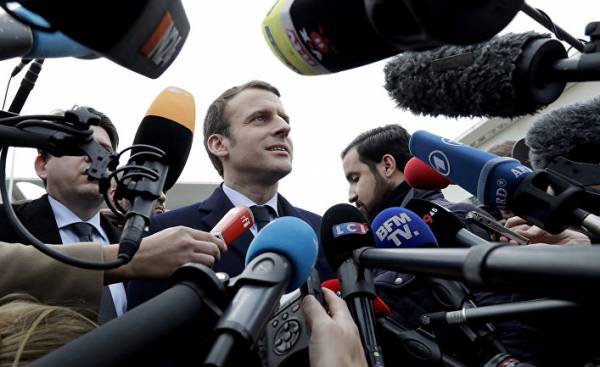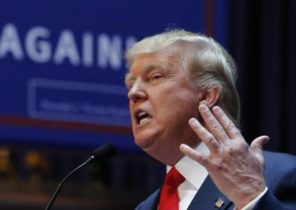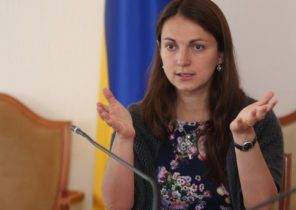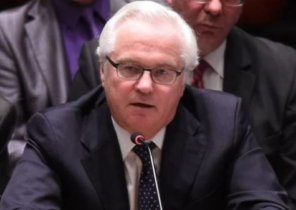
In Brussels, there are some unwritten rules usually are not violated. Perhaps the most important of them calls on the Commission to refrain from interfering in internal political disputes in member countries. On Sunday evening European Commission President Jean-Claude Juncker (Jean-Claude Juncker) took the phone to break this rule.
The Luxembourgers called the Emmanuel Macron (Emmanuel Macron) and congratulated him on his victory in the first round of the French presidential elections. Even formally Juncker did not want to keep an open mind before elections in two weeks. Macron represented the values for which Europe stands, explained this action to the press-Secretary of the cadet. It is, in his words, “the choice between sewn, as advocated by Europe, and another variant, in which Europe will be destroyed.”
In the EU there is little that happens without coordination between Berlin and Paris
Undiplomatic frankness Juncker has one practical and one more profound reason. Basically, he can assume that will not cause any harm. The one who speaks for the EU, would not condemn Juncker for his clear position. Those who are hostile to the EU, you still will probably choose marine Le Pen (Marine Le Pen). More thorough is another argument: from the point of view of the cadets in the elections in France, the question of whether there is in Brussels at all the work that would have to perform.
In March, the Pentagon presented the White paper on the future of the EU, which in case of victory on elections of the enemy, the EU, Le Pen would be useless. Now, in Brussels you have to think about the time after September. Without coordination between Berlin and Paris in the European Union, as experience shows, very little happens. However, if after the Bundestag elections Chancellor Angela Merkel (Angela Merkel) will be re-elected for a new term or a new Chancellor will be Martin Schulz (Martin Schulz), then a new duet with a Macron on the French side do have will again lead to any progress in the EU. This, from the point of view of Brussels, and there is a light at the end of the tunnel.
Some idea of the Makron could cause distrust
But it would be nice if these ideas are possible, President of Macron for many would be too sharp. Especially in the Berlin of the CDU submission 39-year-old Frenchman about the future of economic and monetary Union can cause distrust, if not fierce resistance. Macron wants to create its own budget for the Eurozone, with the Euro Finance Minister and Parliament for the currency space. The distribution of funds, the Frenchman wants to put dependent not primarily on compliance with fiscal rules and from taxation and social policy. However, in its election program does not say about how it should function exactly.
For such far-reaching reforms in any case will have to change the EU treaties, following which would be required in France a referendum with all its unpredictability. Because of only this reason, these proposals unrealistic, says Berlin. Although German Finance Minister Wolfgang Schaeuble (Wolfgang Schäuble), (CDU) says that it advocates strengthening of the Eurozone, but unlike Him he first wants to reduce financial risks in member countries of the EU, before talking about unification. For this reason, schäuble continues to pulls the idea of a joint Deposit insurance scheme.
Causing ideas of Macron
European Commissioner for economic and financial Affairs Pierre Moscovici (Pierre Moscovici) advises Him: “First, France must take care of reliability”. Translated into the language of monetary Union, this means that the new government in Paris should be concerned about the criteria of the stability Pact and the economic growth of the EU countries. “France must respect the rules,” said the Frenchman Moscovici. He was once Finance Minister in Paris and a specialist familiar with this problem when willing to spend more than what the budget provides. Still, Moscovici clear: only after France will prove that it adheres to the fiscal and political agreements, she is again able to play a leading role in the EU.
In Brussels we are convinced that as had happened in the past, the proposal to deepen the monetary Union must come from Paris. Merkel and especially its Finance Minister, the European Commission is perceived primarily as a brake on integration. So the question is, how will the macron to convince the German government that in the literal sense of the word to give more to Europe?
Of course he can hope that the next Chancellor in Berlin will be called Schulz, then it could literally break into open doors with many offers. Thus the candidate of the SPD knows that the majority of Germans have a nasty feeling that they only transfer money in “Brussels”, while others are still making debts.
The macron would be a difficult partner for Berlin
It is clear that macron would not be the simple partner, what would someone in Berlin. His provocative ideas. And many of them are still vague and, moreover, he suggests a phase of consultations from six to ten months in all member countries of the EU. As a result of these consultations must appear some kind of road map that would have resulted in a five-year plan for Europe. In some of his ideas Makron has yet to explain what he wants. He needs to compromise or he will lose in the French Parliament, the election of which in June the movement “Forward” is unlikely to get a majority.
So there are still many open questions. But from the German point of view there’s this: what will the macron surplus of Germany, which he criticized during the election campaign? Whether it will unite with the European Commission, which for several years complaining of the German surplus, however, achieved nothing, because she has no strong allies in the member countries? Or macron will join Schaeuble, who requires stronger inter-state cooperation and wants to diminish the power of the Commission?
The Brussels office, in any case, hopes that his proposal with President Makron gets the most penetrating power. In this environment it wants in its work on the White paper to present a social agenda for the EU. For this reason, we can hardly expect much enthusiasm from Berlin.







